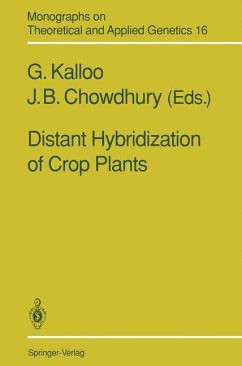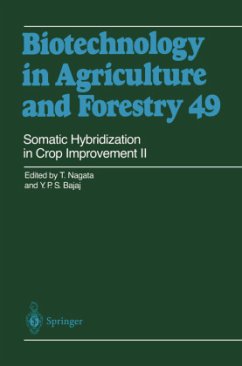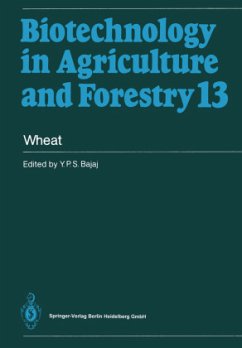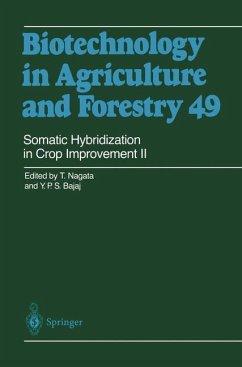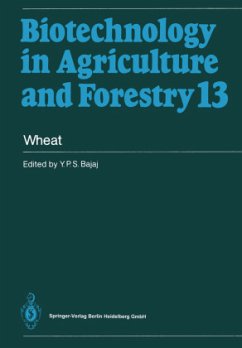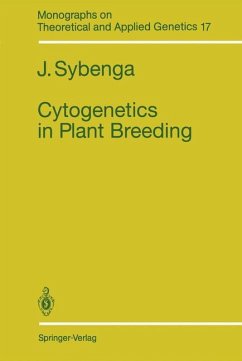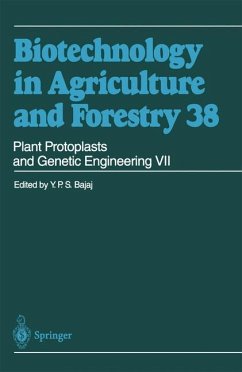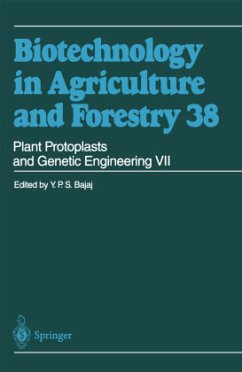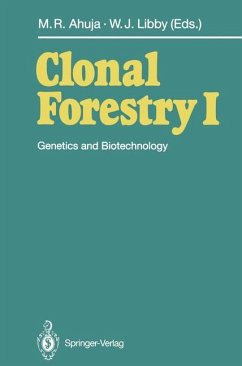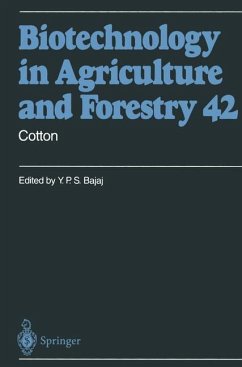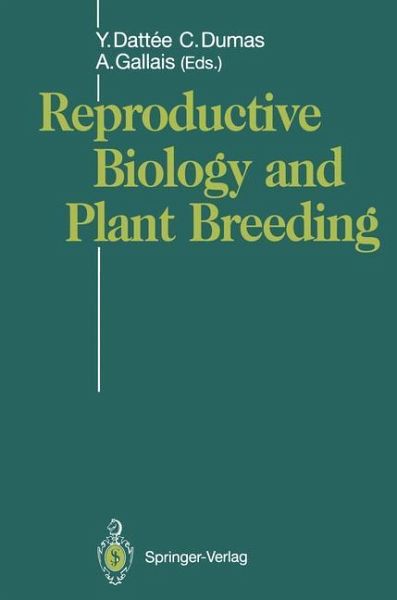
Reproductive Biology and Plant Breeding
Biologie de la Reproduction et Amélioration des Plantes
Herausgegeben von Dattee, Yvette; Dumas, Christian; Gallais, Andre
Versandkostenfrei!
Versandfertig in 6-10 Tagen
74,99 €
inkl. MwSt.

PAYBACK Punkte
37 °P sammeln!
This volume has been produced for the XI 11th EUCARPIA Congress. EUCARPIA (the European Association for Plant breeding) currently has 1.200 members, including scientists and staff of both publ ic and private organizations. Its aim is to promote scientific and technical research and cooperation In the field of plant breeding, and thereby to contribute to the development of agriculture. Every three years, EUCARPIA organizes a scientific congress. In 1992, the Xilith EUCARPIA Congress will be held In ANGERS (Fran ce) and the theme Is "Reproductive biology and plant breeding". Reproduction of plan...
This volume has been produced for the XI 11th EUCARPIA Congress. EUCARPIA (the European Association for Plant breeding) currently has 1.200 members, including scientists and staff of both publ ic and private organizations. Its aim is to promote scientific and technical research and cooperation In the field of plant breeding, and thereby to contribute to the development of agriculture. Every three years, EUCARPIA organizes a scientific congress. In 1992, the Xilith EUCARPIA Congress will be held In ANGERS (Fran ce) and the theme Is "Reproductive biology and plant breeding". Reproduction of plant material Is central to selection. The geneti cist, the plant breeder and the seed grower all use sexual and ve getative reproduction during the various stages of plant breeding and creation of variety. The possibility of unlimited interspecific reproduction, the use of gametogenesis dysfunction, the creation of auto and allogamy, and the cloning of the best genotypes are the challenges before the plant breeder. To understand how the reproductive system conditions the genetic structure of a population, and to Investigate the relation ships between the reproductive mode and the organization of varia bility Is a central key to genetic progress. The articles presented In this book review the current state of knowledge of reproductive biology, and Its impact on variety crea tion.





